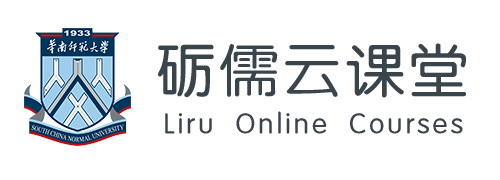光学

光学是物理学专业的必修课程,是经典物理学的基本组成部分;通过对光学的学习,可以了解光的基本性质,知道波动光学的主要内容,明确光是电磁波的一部分,并且可以用相关的实验来解释为什么说光就是波,同时为了与中学教学的衔接,师范类的光学课程往往还保持了一定量的几何光学的内容。本课程要求学生能够掌握作为支持光是波的理论的几个基本原理的规律和应用,如:光的干涉、光的衍射和光的偏振等,以及掌握几何光学的基本概念和成像规律,理解典型光学仪器的基本原理;同时对光的其它性质有一定的接触和了解。

光学是物理学专业的必修课程,是经典物理学的基本组成部分;通过对光学的学习,可以了解光的基本性质,知道波动光学的主要内容,明确光是电磁波的一部分,并且可以用相关的实验来解释为什么说光就是波,同时为了与中学教学的衔接,师范类的光学课程往往还保持了一定量的几何光学的内容。本课程要求学生能够掌握作为支持光是波的理论的几个基本原理的规律和应用,如:光的干涉、光的衍射和光的偏振等,以及掌握几何光学的基本概念和成像规律,理解典型光学仪器的基本原理;同时对光的其它性质有一定的接触和了解。
本课程为国际商务研究生专业核心课程,旨在培养和提高学生对国际商务中跨文化因素的探究分析能力,以及跨文化商务管理、运营和谈判技能。通过课程讲座、案例分析和项目式学习,本课程将提升学生国际商务情境下的跨文化意识,帮助他们掌握跨文化国际商务研究的基本理论和研究范式,以及国际商务中跨文化管理、跨文化谈判、跨文化营销的有效途径和策略。
As a core course of International Business postgraduate program, Intercultural Communication in Business Context aims to develop students' ability in studying on the cultural issues in international business and their proficiency in intercultural management, negotiation and marketing. By means of lecturing, case study and project learning, the course will develop students' intercultural awareness in international business context, equip them with the basic theories and research paradigms of intercultural business communication, and cultivate their effective strategies of intercultural management, negotiation and marketing.
Accounting is the measurement, processing and communication of financial information about economic entities. Accounting, which has been called the "language of business",measures the results of an organization's economic activities and conveys this information to a variety of users including investors, creditors, management, and regulators. We hope that you enjoy the course.
In putting together the course, we assume no prior knowledge of accounting. We also recognise that participants in the course have many different interests in accounting, and reasons for studying accounting. We aim to introduce basic principles and concepts that help us understand the "language of business" and financial statements, We also aim to explain accounting in such a way that it helps you to develop the skills and knowledge necessary to progress towards more advanced work on accounting and reporting.
Welcome to The Context of Business online course.
This online course helps you to test yourself about some simple concepts and theories, and to know how well you can apply the knowledge to real-world scenarios.
Here, you can share your opinion and discuss with your classmates and you can help answering the questions your classmate may concern as well.
Hope you can learn knowledge by self-motivation, sharing and helping with each other here.
Basic English is a core compulsory course for non-English major undergraduates of SCNU as an important part of their general education. The materials of the course units are close to the college students' study and life, covering a wide range of natural sciences, humanities and social sciences, concerning science, technology, economy,history, literature, philosophy, life, social problems and so on. The major task of this course is to cultivate students’ comprehensive ability of reading, writing ,listening and speaking general English in life and academic study, as well as their ability of cross-cultural communication between Chinese and foreign cultures, so as to meet the students’ basic needs of college study, international communication, and future work and employment, and enhance their autonomous learning ability and cultural literacy.
《力学》是物理学(师范)专业的一门重要基础课程。通过该课程的学习,使学生系统地了解和掌握机械运动的基本概念、基本原理、基本知识和方法,体会力学规律在实际中的应用及对人类社会的影响,培养学生提出问题以及分析和解决力学问题的能力,帮助学生建立辩证唯物主义的观点和正确的价值观,提高学生科学素质。《力学》课程内容主要包括四大部分:质点运动学、质点动力学(动量与动量守恒定律,动能与势能,角动量与角动量守恒)、刚体力学、机械振动和机械波。《力学》课程以课堂讲授为主,部分内容让学生自主学习,根据学生的课程论文、课后作业和期末闭卷考试得分,综合计算得出总评成绩。《力学》课程是物理学(师范)专业本科学生学习的第一门专业课,它具有承上启下的桥梁作用,课程中的知识、物理问题研究方法,运用矢量代数和微积分知识解决物理问题的方法等都是后续课程的学习基础。
Aims of the course are:
Course contents/lectures
To learn how to create new three-dimensional forms by scientifically dissecting and recombining various three-dimensional forms, improving students' abilities in image thinking, artistic thinking, and design creativity.
To train students’ abilities in spatial imagination and spatial design through a series of coursework. Students can organize the spatial composition of lines, faces and blocks according to the formal beauty law.
